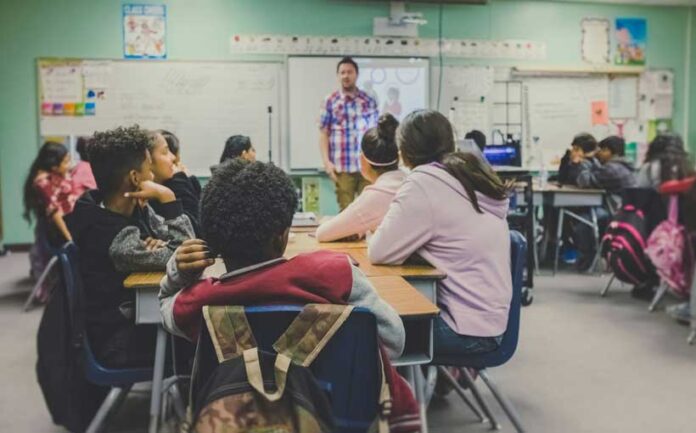Educational systems worldwide are navigating rapid and complex shifts. Political transitions, demographic changes, labor market disruptions, and unequal access to resources place growing pressure on schools.
Educators must guide learners through increasingly complex environments while adapting to global uncertainty. The need for internationally informed and highly skilled professionals has become increasingly clear. Online programs have emerged as a strategic response to these demands.
These programs offer flexible paths for teachers seeking advanced training, while respecting their work schedule and the need to maintain commitments within their communities.
Their value extends beyond convenience. These programs are built around the competencies required to engage within an ecosystem characterized by sociocultural diversity, policy reform, ethical leadership, and the need for cross-border communication.
The Global Nature of Education
Contemporary education is shaped by factors that cross national boundaries. Geopolitical tensions, climate events, humanitarian crises, and economic volatility all disrupt learning environments. Educators must interpret these developments and translate them into practical local strategies.
Schools serve as spaces where global conversations unfold daily. Students bring experiences influenced by migration, varied cultural backgrounds, and shifting economic expectations. Effective teaching requires understanding how global forces shape classroom realities.
Online preparation programs recognize this complexity. They embed interdisciplinary perspectives into coursework, encouraging future leaders to study comparative policy and governance models.
This produces a learning approach grounded in international awareness and best practice rather than narrow domestic framing.
Building Competencies for Worldwide Engagement
Developing globally prepared educators means cultivating strategic thinking, research capacity, and cross-cultural communication. These skills are crucial when working in settings shaped by linguistic diversity, historical sensitivities and uneven policy structures.
Advanced online programs often integrate comparative studies. Learners examine how varied countries across the globe approach curriculum design, teacher autonomy, assessment methods and system reform. This analysis provides a broader set of tools for solving challenges in local schools and districts.
By studying successes and shortcomings across different regions, educators can determine which practices are suitable for their own environment. This strengthens evidence-based decision-making, an essential capability in a rapidly changing world.
Strengthening Leadership Amid Global Uncertainty
Educational leadership now requires a diplomatic mindset. School leaders must navigate competing interests, advocate for equitable funding, and respond quickly to disruption. Effective leadership balances community needs with global trends.
Online leadership programs also emphasize negotiation skills, resource planning and stakeholder engagement. These competencies help leaders build resilient systems and anticipate emerging obstacles, from funding gaps to staffing shortages.
A good example is the Texas online Masters in Education, which offers a framework for developing strategic leadership grounded in applied practice. Programs like this prepare educators to evaluate policy, manage diverse teams, and operate in environments shaped by international forces.
Digital Instruction for a Connected World
Digital transformation has reshaped how education functions. Teachers must engage learners through virtual tools, asynchronous communication and multi-platform environments.
Although digital readiness differs across regions, the global shift toward technology-mediated learning continues.
Online preparation programs model the digital and online tools educators need. This immersion sharpens digital fluency and improves the ability to design accessible online learning experiences. It also deepens understanding of how technology intersects with equity and governance.
As digital instruction expands, educators must balance innovation with ethical responsibility. This includes managing accessibility, appropriate data usage and communication norms. Online graduate programs highlight these considerations, preparing teachers to act responsibly in interconnected environments.
Addressing Inequality Through Global Perspectives
Educational inequality remains a persistent global issue. Disparities reflect broader socioeconomic imbalances and are intensified by geopolitical or environmental instability. Preparing educators to address these gaps requires training that incorporates global analysis and local context.
International reports show how systemic shocks can deepen learning divides. Recognizing these patterns helps educators design interventions that support vulnerable populations.
Online programs that integrate global research strengthen the capacity for inclusive teaching. They provide frameworks for developing strategies rooted in evidence and informed by international findings.
Global inequities frequently overlap with political instability, social fragmentation and economic strain, creating conditions that challenge entire school systems.
Educators who understand these intersecting pressures can design more responsive learning environments and support students facing complex obstacles that extend far beyond the classroom.
Encouraging Innovation Through International Collaboration
Cross-border collaboration has become a key part of professional development. Online programs draw participants from diverse regions, creating communities modeled on international cooperation.
Learners exchange insights shaped by different educational structures and cultural expectations. This exposure encourages innovative thinking and broadens understanding beyond domestic frameworks. It also reinforces the global mindset needed for sustainable educational reform.
These interactions support adaptability and foster a deeper appreciation of the interconnected nature of modern education systems.
The Long-Term Value of Online Global Education Preparation
Preparing educators for global challenges strengthens national education systems. Teachers with international perspectives support learners navigating complex sociopolitical pressures. Leaders informed by global policy trends develop more resilient long-term strategies.
Online programs act as catalysts for this growth. They encourage ongoing engagement with global themes and provide accessible avenues for professional advancement.
As education evolves alongside geopolitical shifts, internationally trained educators will become increasingly valuable.
Moving Forward with Purpose
The future of education depends on individuals who can interpret global developments while maintaining strong local ties. Online programs play a central role in cultivating these competencies. They encourage innovation, broaden perspectives, and support informed decision-making.
Educators trained through globally oriented online pathways carry a richer understanding of how worldwide events influence learning. Their preparation contributes to more stable systems and stronger community outcomes.
In an ecosystem characterized by uncertainty, these professionals help shape meaningful progress in classrooms around the world.


